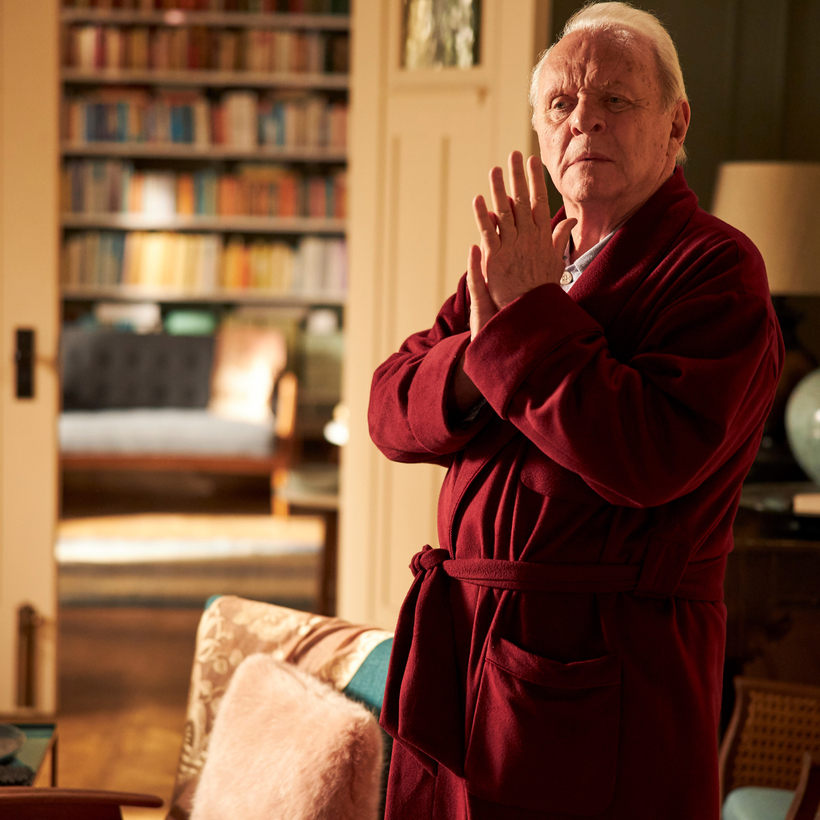Florian Zeller was 15 years old when his grandmother, who helped raise him, began to suffer from dementia. After she was no longer allowed to drive, he remembers, she became fixated on her car. “She was convinced all the time that someone had stolen it,” Zeller says in a video call from Paris, “which led to her becoming almost paranoid about it.”
In The Father—a film based on Zeller’s hit 2012 play of the same name, and also marking his debut as a film director—Anthony Hopkins plays Anthony, a man suffering from dementia who develops a fixation on his watch. “The watch becomes a symbol for Anthony’s lost bearings,” Zeller explains. “His illness means that time’s linear nature is constantly called into question.”
No such doubt can be attached to Zeller’s artistic career, which marches merrily on. To the 41-year-old Frenchman’s list of achievements—a résumé that includes a politically acute novel (The Fascination of Evil) and several superb plays (among them The Mother, starring Isabelle Huppert, and The Height of the Storm, starring Jonathan Pryce and Eileen Atkins)—can now be added adept filmmaker. The Father, which premiered yesterday, already has four Golden Globe nominations, one of them for best motion picture.

Zeller’s film, which also stars Olivia Colman as Anthony’s daughter, Anne, takes the form of a puzzle that won’t go neatly back together. “For me writing is about building a labyrinth,” says Zeller, who co-wrote the screenplay with Christopher Hampton. “I’m someone very obsessional, who goes back and rethinks everything I write.”
This mania makes for an ideal expression of Anthony’s memory loss in The Father. Zeller deliberately disorients his audience by replaying certain scenes more than once, or using different actors to play the same characters, to conjure the shifting sands of Anthony’s mind. “When we establish that the daughter of the main character is played by Olivia Colman and then suddenly another actress [Olivia Williams] appears pretending to be the same character, the audience is put in the same position as Anthony, who thinks he’s going mad,” says Zeller. He cites David Lynch’s 2001 film Mulholland Drive as a formative influence on his work.
One of the things that Zeller found most interesting about adapting his play for the screen was the way that he could use a film studio to play around with details in the London apartment where an increasingly uncertain Anthony lives. “Little by little—always in the backdrop—slight changes appear in the décor, which undergoes a subtle metamorphosis,” says Zeller. “To the point where we recognize the place but at the same time we’re not quite sure where we are.”
“His illness means that time’s linear nature is constantly called into question.”
Zeller doubts that he would have ever made The Father into a film if Hopkins had turned down the role of Anthony, who was originally called André in the play and has the same date of birth as Hopkins (December 31, 1937). “He often portrays very intelligent people who are in control of a situation,” Zeller says. “So I thought it would be quite de-stabilizing for the audience to see him play a part where he loses control of himself.”
The experience of making the film also shifted Zeller’s perception of what he was trying to achieve in the first place. The play, which he wrote eight years ago, was subtitled A Tragic Farce. “It was something I used when I wrote the play to underline its comic dimension,” Zeller says. “But the film doesn’t have that same element and is certainly not a farce.”
The Father is in selected theaters now. The film will be available for streaming beginning next month
Tobias Grey is a Gloucestershire-based writer and critic

